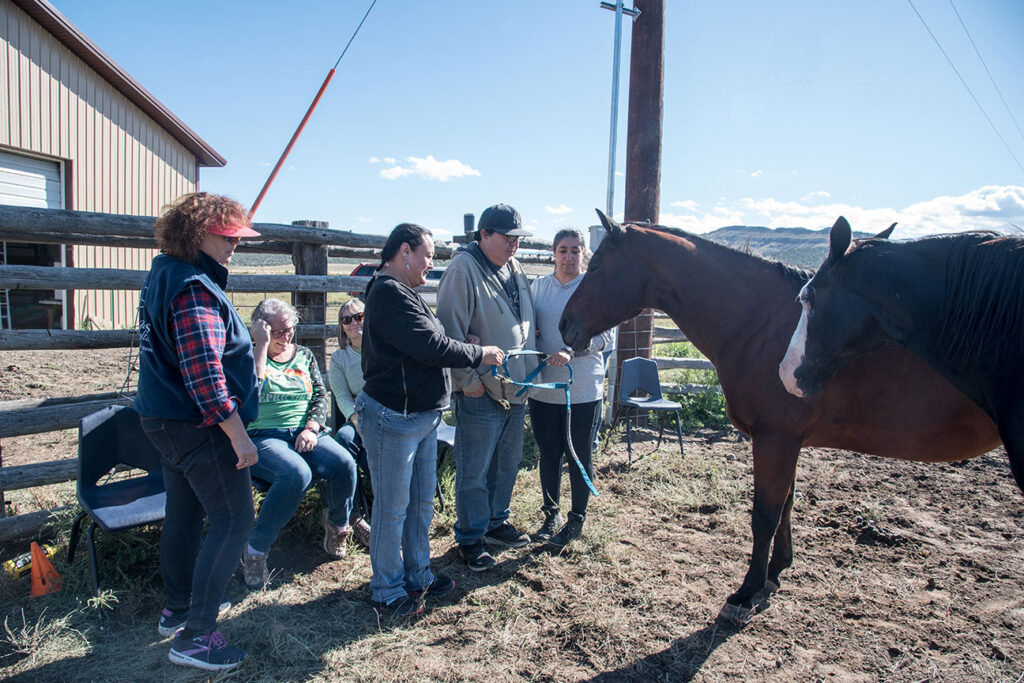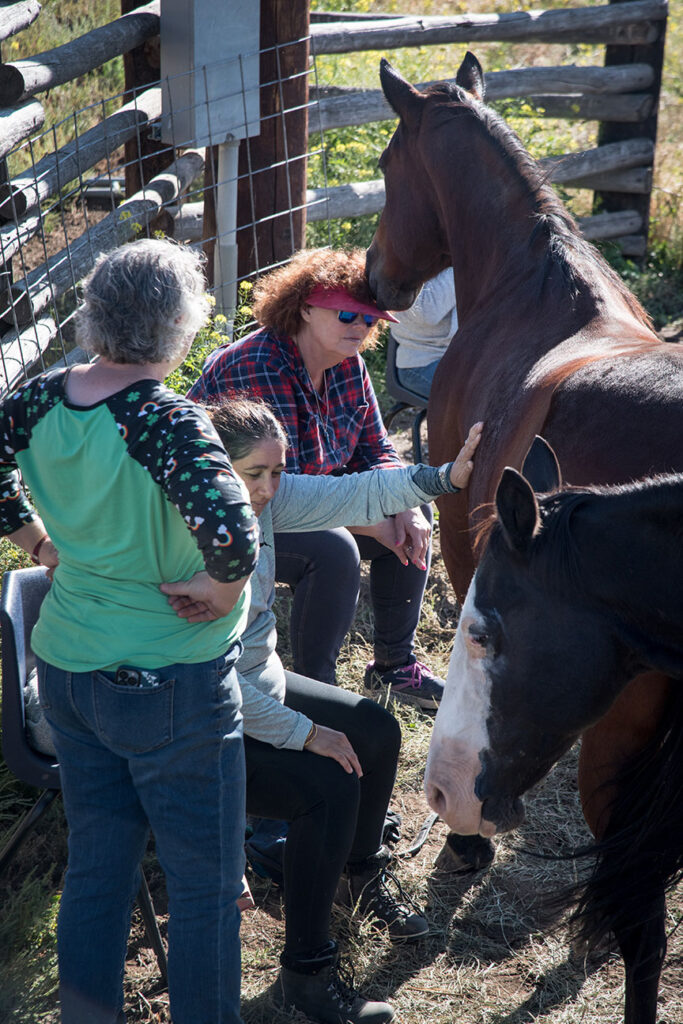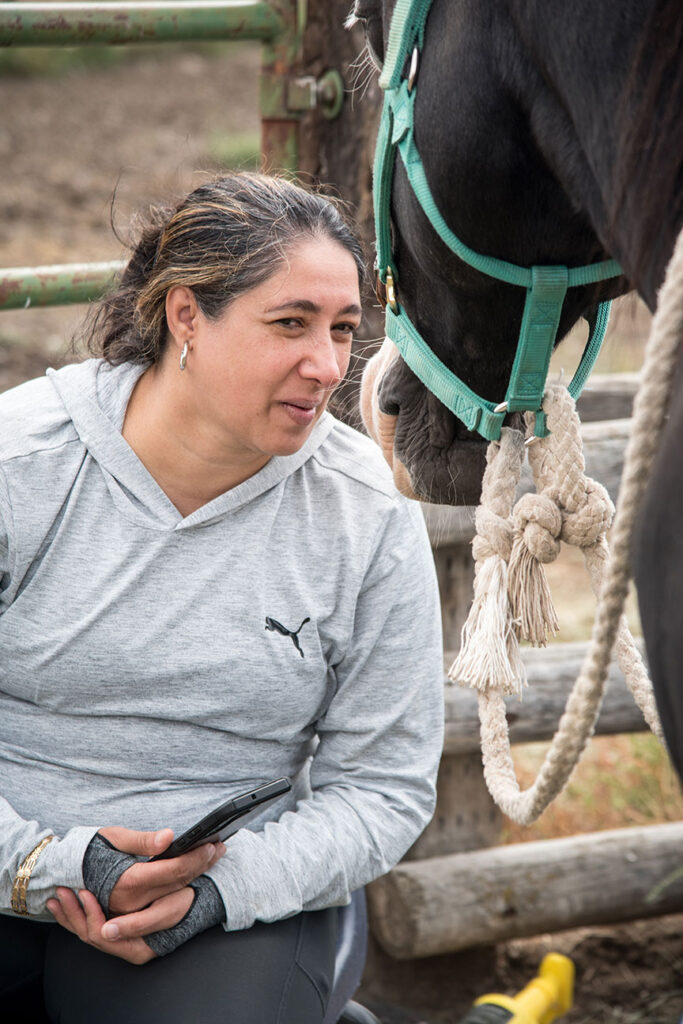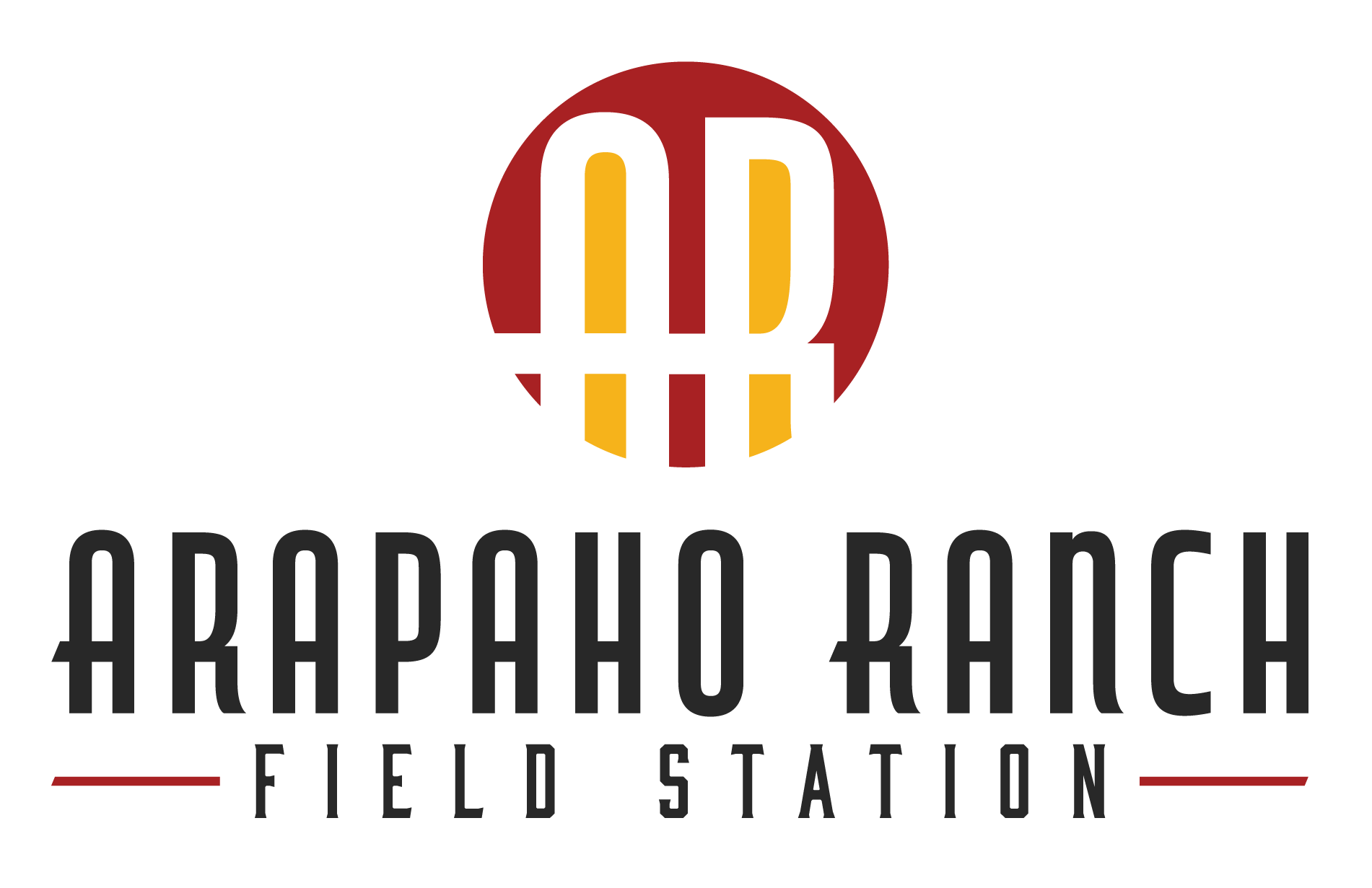“Pick a halter. Pick a horse. Put the halter on the horse however you can. When you’re done, say, ‘I’m done.’”
These were the first instructions given to the tribal healthcare professionals who participated in a recent Equine Assisted Learning (EAL) workshop at the Arapaho Ranch Field Station, led by Janet Hagen, Ph.D.
What is Equine-Assisted Learning (EAL)?
Equine-Assisted Learning (EAL) is a skill-building method where people do ground work with horses to achieve particular personal or professional goals.
“Hiding emotions, and hiding from emotions, is not good for your health, and horses know what you are thinking and how you are feeling.”
Dr. Janet Hagen, Ph.D.
Dr. Hagen (Pegasus Leadership Consultants) has practiced EAL and presented workshops/EAL certification for six years.
For this particular workshop, Dr. Hagen tailored each session to help participants understand how to use EAL as a therapy in their work on Wind River Reservation.
“The [EAL] focus is experiential problem solving, or experiencing your own emotions in real-time,” Dr. Hagen explained. “Each participant gets the opportunity to experience ‘A-Ha’ moments.”
Over the course of three days, Hagen demonstrated ways that horses’ herd behavior and prey status help humans emotionally. At the same time, the horses—Scoot and Tommy—helped participants learn how to be better humans through a heightened awareness of themselves, their behavior toward others, and the ability to see themselves as part of a herd.

What are the benefits of Equine-Assisted Learning (EAL)?
In EAL, participants work both alone and in teams of two or three.
When three people are asked to work in tandem, they must rely on different senses to complete the exercises.
For example, in one exercise, three people lock their arms together. The two flanking individuals act as the left and right “arms” for the person in the center, who serves as the “brain” and gives instructions to the “arms.” The left and right “arms” can only do what they hear or interpret from the “brain.”
This exercise highlights the importance of specific communication, and it’s helpful for improving the dynamics of communication in therapy.
A powerful moment at the Arapaho Ranch Field Station workshop
One of the most profound moments of the EAL workshop was when one of the horses, Scoot, had a strong response to Dr. Hagen.
After Dr. Hagen thanked Scoot for the work he’d done, Scoot walked over and rubbed his face against hers—an expression of tremendous affection.
Of the experience, Dr. Hagen recalled: “The important part for the training is that the participants experienced that moment vicariously. It was a very powerful visual to keep with them to remember the power of the connection.”


Will there be more Equine-Assisted Learning workshops at Arapaho Ranch Field Station?
Dr. Hagen’s work with the workshop participants surpassed their expectations, and the Indian Health Service is currently working with Dr. Hagen to present more workshops.
(While we haven’t confirmed the location, we do hope to host the workshops at the Field Station again, as it allows everyone to disconnect from their everyday obligations and immerse themselves in the full experience.)
What events are coming up next?
Click here to visit our calendar and explore upcoming opportunities to learn with us at the Field Station!

